In August, President Donald Trump issued twin executive orders that would shut down two Chinese apps – TikTok and WeChat – by September 20, if they were not sold to American owners. In fact, just five days ago (Wednesday), Trump told reporters that he was not ready to approve a proposal from China-based ByteDance to make Oracle its “business partner” or “trusted tech partner”.
Trump expressed his displeasure of not able to receive “key money” for what the U.S. president believed is a deal he helped to broker. Apparently, lawyers lectured him that it would be illegal to solicit the money. At the same time, Trump also objected to the idea that ByteDance would retain a majority stake in TikTok’s U.S. operations, while Oracle could only gain a minority stake.
Two days later (Friday), about 100 million Americans were getting ready for the worse as the Trump administration said downloads of both TikTok and WeChat in the U.S. will be blocked on Sunday (Sept 20). Of course, most teenagers who are the primary users of TikTok knew how to bypass the ban. All they need is a VPN (virtual private network), which are available for free.
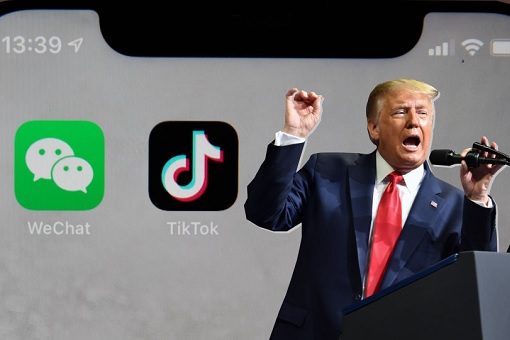
On Saturday, ahead of the total ban, Trump suddenly announced he has approved the TikTok-Oracle deal. Effectively, the massively popular video-sharing app will not be shut down after all. Calling the deal a “great deal for America”, Trump said – “We have some very big news on TikTok. I have given the deal my blessing. I approved the deal in concept.”
The deal will also involve Walmart, who said it has tentatively agreed to acquire a 7.5% stake in TikTok. Oracle, on the other hand, will become a minority investor with a 12.5% stake. That means ByteDance, the parent company of TikTok, will own the remaining 80% of TikTok. However, before the deal, 40% of ByteDance is already owned by U.S. venture capital firms.
Therefore, Trump can claim victory and brags that TikTok Global, a name of the new company to be established in preparation for an IPO (initial public offering), is now majority owned by the U.S. Essentially, ByteDance will remain as the single biggest shareholder of TikTok. More importantly, ByteDance still owns the secret algorithm or the engine of TikTok.
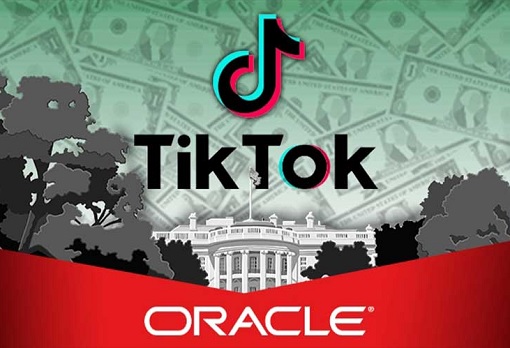
However, the deal shows how Trump actually contradicts himself when he told reporters on Saturday that TikTok would be “totally controlled” by Oracle and Walmart, despite the fact that they will own only a 20% stake in TikTok. Clearly, the deal is not what the president had envisioned. Base on his executive orders, Trump had wanted the U.S. TikTok operations to be sold – 100% – to American companies.
The deal that Trump just approved looks more like a joint venture between ByteDance and two American companies (Oracle and Walmart). Of course, the role of Oracle as a “trusted technology partner” is just to host all U.S. user data by moving them to Oracle’s cloud infrastructure so that the U.S. national security requirements can be fully satisfied.
The very fact that he did not throw the deal out of the window proves that TikTok isn’t a U.S. national security threat in the first place. ByteDance deliberately chose Oracle instead of Microsoft because it knew Oracle Chairman Larry Ellison is a close political ally of Trump. Microsoft’s proposal would make more sense as it involved acquisition of U.S., Canada, Australia and New Zealand operations.
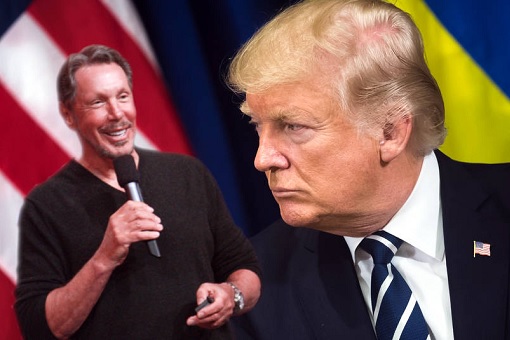
Although Oracle reportedly will have “full access” to TikTok’s source code to ensure no back doors exist, it’s also true that Chinese officials have indicated Beijing is willing to approve a deal as long as ByteDance doesn’t have to give up the artificial intelligence algorithms behind the hugely successful Chinese app. Hence, the secret sauce is secured in the hands of China.
So, why did Trump decide to approve a proposal that still sees ByteDance as a majority shareholder? As a start, Oracle Ellison is his buddy and the idea of Oracle hosting TikTok user data satisfies him. The business-minded POTUS also bought the idea that the new company, TikTok Global, will be incorporated in Texas. Trump was equally excited TikTok will create 25,000 jobs across the country.
It was all about business from the beginning. Commercially, Oracle, who has been lagging behind competitors like Amazon, Microsoft and Google for cloud storage business will certainly receive a major boost as a result of the deal, thanks to the 100-million American TikTok users. Similarly, Walmart will also reap the benefit of tapping a massive consumer base of mostly young people.
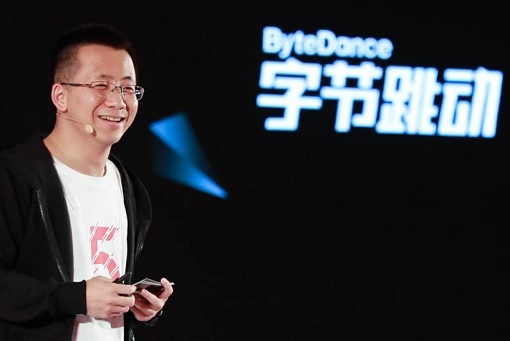
TikTok’s owner ByteDance Ltd., who is seeking a valuation of between US$50 billion to US$60 billion for the app, has all along wanted to list the company in the U.S. That’s the primary purpose of Chinese-based companies expanding their business in America – to “cash out” part of their stake to American investors. The IPO carrot thrown to Trump works like a charm.
As expected, TikTok said in a statement that it was “pleased that the proposal by TikTok, Oracle, and Walmart will resolve the security concerns of the U.S. administration and settle questions around TikTok’s future in the U.S.” And ByteDance can always leave U.S. TikTok without the algorithm if it is forced to divest its entire stake post-IPO due to political pressure from Trump or a new U.S. president.
Still, the deal has to be approved by the Committee on Foreign Investment in the United States (CFIUS), not to mention Beijing. But TikTok isn’t the only Chinese app that survives the Sunday deadline. WeChat also survives, at least for now, after U.S. Magistrate Judge Laurel Beeler decided to block Trump’s attempt to ban the Chinese messaging and payment app.
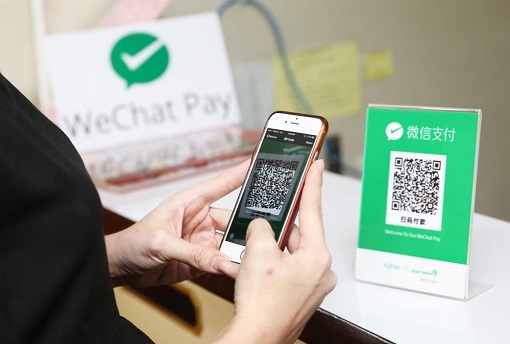
Following President Trump’s allegation that WeChat threatens national security, the Department of Commerce had announced that the app would be shut down and taken off from the U.S. app stores effective 11:59pm Sunday. But the U.S. judge said the ban raised serious questions related to the U.S. Constitution’s First Amendment – guaranteeing free speech.
Delivering the result in favour of a group of US-based WeChat Users Alliance who filed the lawsuit, Judge Laurel Beeler said – “The plaintiffs’ evidence reflects that WeChat is effectively the only means of communication for many in the community, not only because China bans other apps, but also because Chinese speakers with limited English proficiency have no options other than WeChat.”
The U.S. judge also appeared to lecture Trump when she said there are alternatives to a complete ban, such as barring WeChat from government devices, as Australia has done. The order not only blocks the Trump administration’s ban on downloads of WeChat, but also blocks the government’s effort to restrict internet infrastructure companies from carrying or hosting WeChat’s internet traffic.
Other Articles That May Interest You …
- Trump To Block Downloads Of TikTok & WeChat On Sunday – But Every Teenager Knows How To Use VPN To Bypass It
- You Can Buy The Car, But Not The Engine – TikTok Rejects Microsoft, Only To Work With Oracle As “Trusted Tech Partner”
- Sale Of TikTok Hits Roadblock – China Takes Control, Could Stop The U.S. From Owning Chinese AI Technology
- Trump’s Ban On WeChat Will Backfire On Apple – Chinese Users To Throw Away iPhones Without WeChat
- Here’s The Real Reasons Trump Bans TikTok – And It Has Nothing To Do With National Security Threat
- Only 6,000 Showed Up – How TikTok & K-Pop Humiliated Trump, Tricking His Campaign About 1 Million Tickets
- China No Longer Needs U.S. Parts – Huawei Mate 30 Contains Zero American Chips
- From Trade War To Tech War – After 5G Technology, The US Aims To Cripple China’s Artificial Intelligence
- “You Cannot Crush Us” – Huawei Founder Warned About Shifting Investment From The U.S. To U.K.
- Huawei Strikes Back – U.S. Fears Of Being Left Behind, Fails To Hack Into Huawei To Spy
- China Invasion – Top 10 American Iconic Brands Now Owned By Chinese

|
|
September 21st, 2020 by financetwitter
|


|

|

|

|

|

|




























Comments
Add your comment now.
Leave a Reply